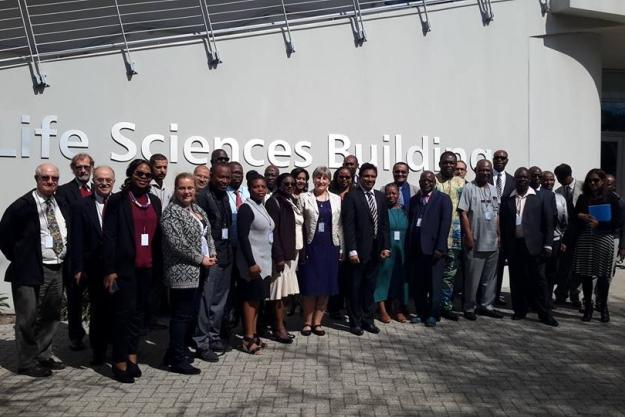
The workshop on All African Nanoscience-Nanotechnology Initiative (AANNI) participants.
“Latest developments in nanotechnology pose a major challenge to the chemical weapons non-proliferation regime. However, they also have enormous potential to tackle potential future chemical threats,” noted Rohan Perera, Senior International Cooperation Officer of the Organisation for the Prohibition of Chemical Weapons (OPCW) at the workshop of the All African Nanoscience-Nanotechnology Initiative (AANNI), held at the University of the Western Cape, South Africa, from 20 – 22 September.
Nanoscience – the study of atoms and molecules – is a relatively young but dynamically developing field. It has already made significant inroads into many fields, including the chemical weapons agenda. The 2nd AANNI workshop focused on the peaceful uses of nanotechnology, but also its possible application in other areas, such as environmental protection, climate change, food security, health management and renewable energy.
Emmanuel Iwuoha, the Chair of the AANNI, underlined: “This Initiative is a useful platform for sharing recent developments and challenges in nanoscience and in nanotechnology research and innovation in Africa. We want to build capacity through networking and exchange with centres of excellence on our continent.”
The workshop was attended by 29 participants from educational and research institutions, as well as government laboratories from 18 OPCW Member States in Africa.
The AANNI was initiated in November 2014 and is part of OPCW’s Programme to Strengthen Cooperation with Africa. The workshop was organised in cooperation with the University of the Western Cape, Cape Town, South Africa.
For more information:
OPCW’s Programme to Strengthen Cooperation with Africa
